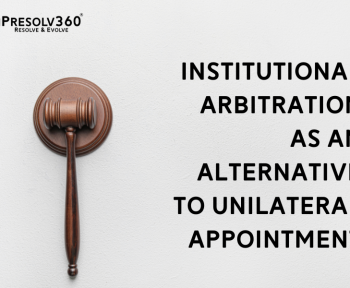By Arif Mohammed Madani
The Arbitration and Conciliation Act, 1996 (the Act) underwent amendments in 2015. These aimed to improve the efficiency, cost-effectiveness, and impartiality of the arbitration process. Further, in recognition of the importance of institutional arbitration, Parliament made further amendments to the Act in 2019. This aimed to establish an independent body – the Arbitration Council of India (ACI) – to promote and streamline institutional arbitration. Although this initiative is commendable, delays have marred its implementation.
Clause 10 of the 2019 Amendment introduces new sections, viz. Sections 43-A to 43-M, for the establishment of the ACI. According to Section 13-D(1), the ACI is responsible for all necessary measures to advance and support the use of arbitration. This also applies to mediation, conciliation, and other forms of alternative dispute resolution (ADR). The ACI must develop policies and guidelines for establishing, operating, and maintaining consistent professional standards for all aspects of ADR.
What is the Arbitration Council of India (ACI) responsible for?
Section 43-D(2) empowers the ACI to develop policies and guidelines governing the grading of arbitral institutions. It also empowers it to recognise professional institutes for the accreditation of arbitrators. The ACI has the authority to review and update norms to ensure quality arbitration and conciliation services. It provides a forum for discussions around establishing India as a leading centre for domestic and international arbitration and conciliation.
In addition, the ACI is responsible for recommending various measures to the Central Government. These aim to facilitate the easy resolution of commercial disputes and promote institutional arbitration by strengthening arbitral institutions. The ACI is also responsible for conducting examinations, training, and certificates on various subjects relating to arbitration and conciliation. Additionally, it must establish and maintain a depository of arbitral awards made in India. Finally, it makes recommendations regarding personnel, training, and infrastructure of arbitral institutions.
Overall, Section 43-D(2) demonstrates the ACI’s crucial role in ensuring the effective administration and promotion of arbitration in India. However, more than three years after the amendment to the Act in 2019, the establishment of the ACI remains elusive. The rules regarding various details of the CEO, Chairperson, and members of the ACI have been notified. However, the ACI itself remains just an idea.
Arbitration delayed: a growing backlog of applications
This ongoing delay has contributed to the growing backlog of applications, such as those submitted under section 11. There, the petitioner must often wait for years for the mere appointment of an arbitrator. Currently, the responsibility for such appointments falls upon the already overburdened courts. The Supreme Court of India recognised that delays in the disposition of applications would defeat the objectives of the Act.
If the ACI had been established, this burden would have been eased. In that case, the authority to appoint arbitrators in ad hoc arbitrations would have been shifted to the arbitral institutions. These would have been designated by the Supreme Court or the High Court graded by the ACI, making them credible. These institutions would have been able to effectively handle the appointment of arbitrations and resolve commercial disputes promptly. Reports from the High-Level Committee and the Law Commission have emphasised institutionalising arbitrations for greater efficiency in dispute resolution.
The much-needed boost for ODR
The ACI’s authority to grade arbitral institutions would have opened opportunities for the recognition and accreditation of online dispute resolution (ODR) institutions. These institutions specialise in resolving small claims disputes by employing and leveraging technologies like digital communication, case management tools, audio-video conferencing, digital signing and stamping, and advanced tools like natural language processing, machine learning, and artificial intelligence for automation, transcriptions, and translation. These enable them to resolve disputes at a scale from diverse geographies and demographics within just 60-90 days at a fraction of the cost otherwise expended, thereby bringing greater inclusivity and access.
The full potential of these ODR institutions should be leveraged to bring about a transformation and revolution in the administration of justice. With an alarming backlog of almost five crore pending cases, blending technology and justice delivery has become inevitable. Therefore, it is proposed that the expertise of ODR institutions must be fully exploited to help reduce the burden on the court system and bring about much-needed efficiency in the ADR ecosystem.
Conclusion
The delayed establishment of the ACI undermines the intent of the 2015 and 2019 Amendments to the Act, which aimed to streamline and improve the process of ADR in India. Action must be taken for the urgent constitution of the ACI and recognition and grading of ADR and ODR institutions, to ensure that the benefits of an efficient, cost-effective, and timely dispute resolution mechanism are realised.
In the meantime, transitional provisions can be notified to enable disputing parties to seek assistance and services from recognised ADR and ODR institutions until the ACI is fully operational and functional. This will help alleviate the burden on courts and ensure a smooth transition until the ACI is fully established. Failure to act now would only prolong the existing problems of pendency in the system and dent the efforts to make India an international hub for arbitration.
Arif Mohammed Madani is a retired district judge with 25 years of judicial experience and over 10 years of experience as an arbitrator.
Published originally on SCC Online (Realising India’s Potential to become an Arbitration and ODR Hub, 23rd February 2023).




